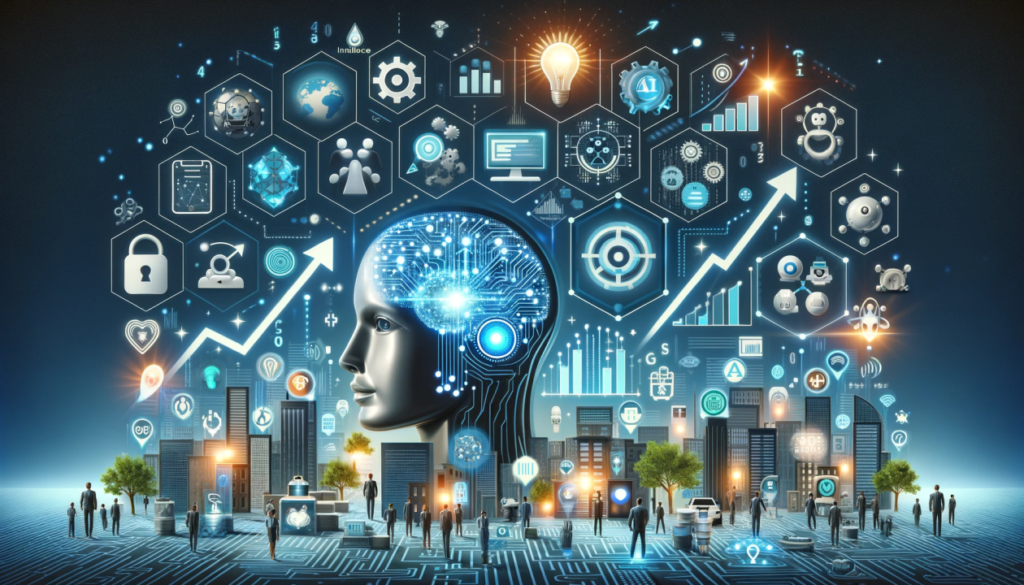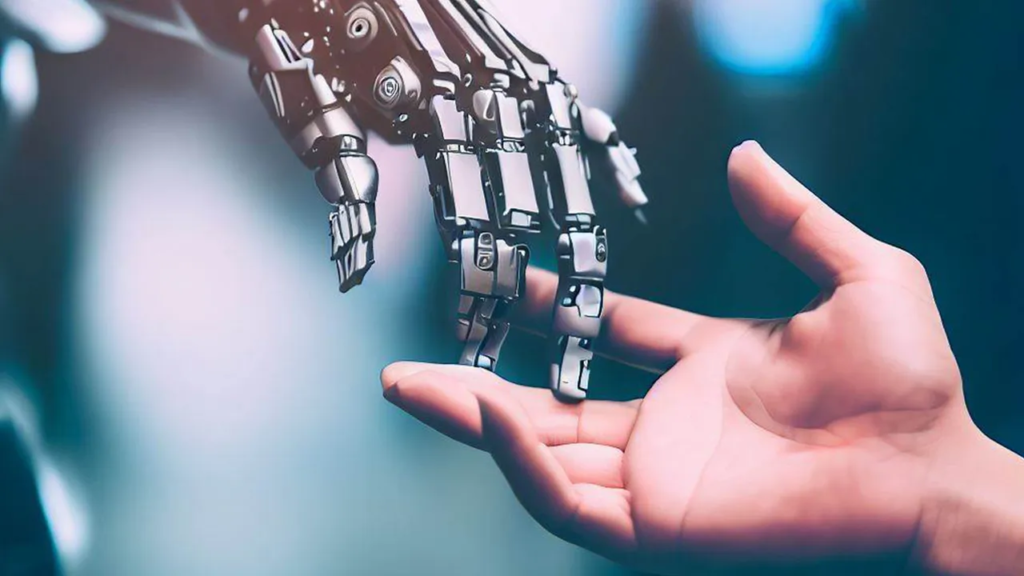Artificial intelligence (AI) has emerged as one of the most transformative technologies of the 21st century, reshaping industries, driving innovation, and revolutionizing the way we live and work. From healthcare and finance to manufacturing and transportation, AI is permeating virtually every sector of the global economy, unlocking new opportunities, and redefining the boundaries of what’s possible. In this article, we’ll explore the profound impact of AI on industries across the globe, examine key applications and use cases, and discuss the opportunities and challenges it presents for businesses, workers, and society as a whole.
The Power of AI
At its core, AI refers to the development of computer systems capable of performing tasks that typically require human intelligence, such as learning, reasoning, problem-solving, and decision-making. This is achieved through the use of algorithms, data, and advanced computational techniques, including machine learning, deep learning, natural language processing, and computer vision.
The potential applications of AI are vast and diverse, spanning a wide range of industries and use cases. In healthcare, AI-powered diagnostic tools are improving patient outcomes by providing faster and more accurate diagnoses of diseases such as cancer, diabetes, and cardiovascular conditions. In finance, AI algorithms are revolutionizing risk management, fraud detection, and investment strategies, enabling financial institutions to make data-driven decisions and mitigate risks more effectively.

Moreover, AI is transforming industries such as manufacturing, retail, transportation, and agriculture, driving efficiency gains, cost savings, and innovation across the supply chain. From predictive maintenance and quality control to personalized marketing and autonomous vehicles, AI-powered solutions are reshaping business models and driving competitive advantage for companies around the world.
AI Across Industries
One industry that has seen significant disruption from AI is manufacturing. AI-powered robotics and automation systems are revolutionizing production processes, increasing efficiency, and reducing labor costs. In addition to traditional manufacturing tasks such as assembly and packaging, AI-enabled robots are now capable of more complex tasks, such as machine learning algorithms that optimize production schedules and predictive maintenance systems that minimize downtime.
In the retail sector, AI is driving personalization and enhancing the customer experience. Recommendation algorithms analyze customer data to provide tailored product recommendations, while chatbots and virtual assistants handle customer inquiries and support, improving customer service and satisfaction. AI-powered analytics also help retailers optimize inventory management, pricing strategies, and supply chain operations to meet consumer demand more effectively.
Another industry being transformed by AI is transportation. Autonomous vehicles are poised to revolutionize the way people and goods are transported, offering the potential for safer, more efficient, and more environmentally friendly transportation solutions. AI algorithms enable these vehicles to perceive their surroundings, navigate complex environments, and make real-time decisions to ensure safe and reliable operation.
In healthcare, AI is revolutionizing patient care and medical research. Machine learning algorithms analyze vast amounts of patient data to identify patterns and trends, leading to more accurate diagnoses and personalized treatment plans. AI-powered imaging systems enhance medical imaging techniques such as MRI and CT scans, enabling early detection of diseases and improving patient outcomes.
Opportunities and Challenges

While the potential benefits of AI are immense, the technology also presents a number of challenges and considerations that must be addressed. One of the primary concerns is the impact of AI on jobs and the workforce. While AI has the potential to automate routine tasks and increase productivity, it also raises concerns about job displacement and the need for reskilling and upskilling workers to adapt to new roles and responsibilities.
Moreover, AI raises ethical and societal questions regarding privacy, bias, and accountability. As AI systems become increasingly integrated into daily life, concerns about data privacy and security are paramount. Bias in AI algorithms can perpetuate existing inequalities and discrimination, leading to unfair outcomes for certain groups. Additionally, ensuring accountability and transparency in AI decision-making processes is essential to maintain trust and confidence in the technology.
In conclusion, artificial intelligence is revolutionizing industries across the globe, driving innovation, and reshaping the way we live and work. From healthcare and finance to manufacturing and transportation, AI-powered solutions are unlocking new opportunities and driving efficiency gains across a wide range of sectors. However, realizing the full potential of AI will require addressing key challenges related to jobs, ethics, and accountability. By fostering collaboration and responsible deployment of AI technologies, we can harness the power of AI to create a more prosperous, inclusive, and sustainable future for all.
